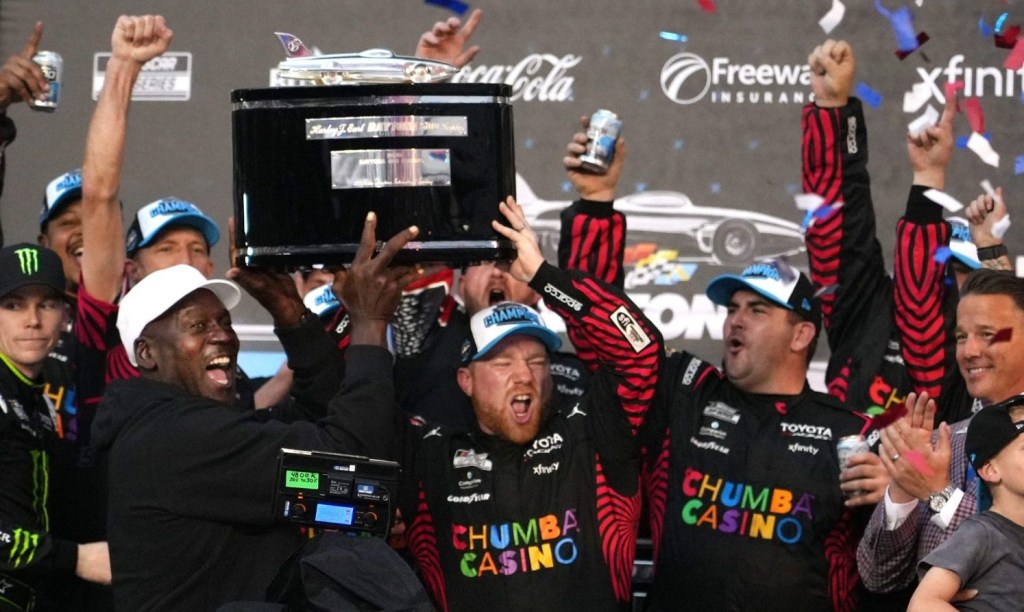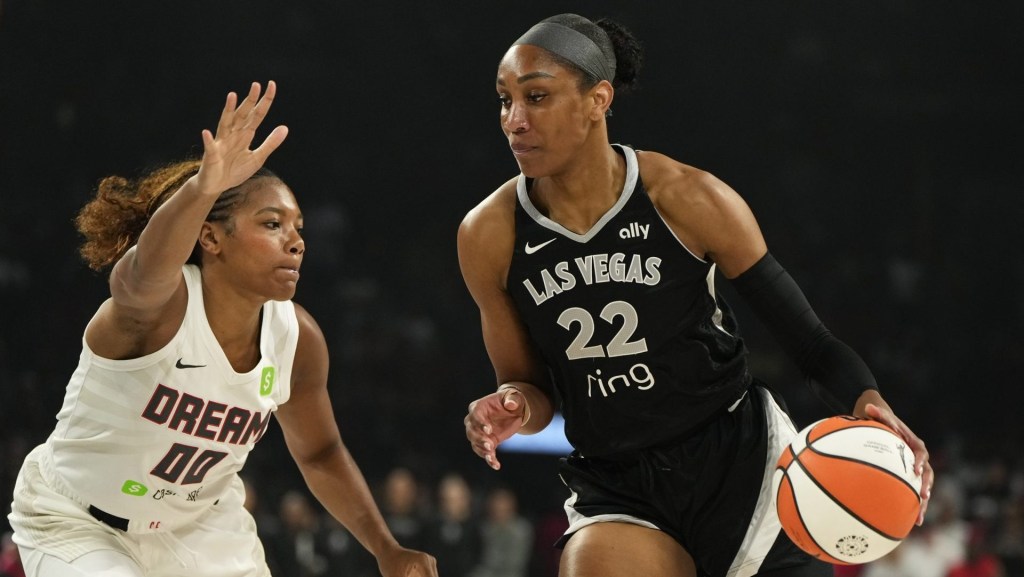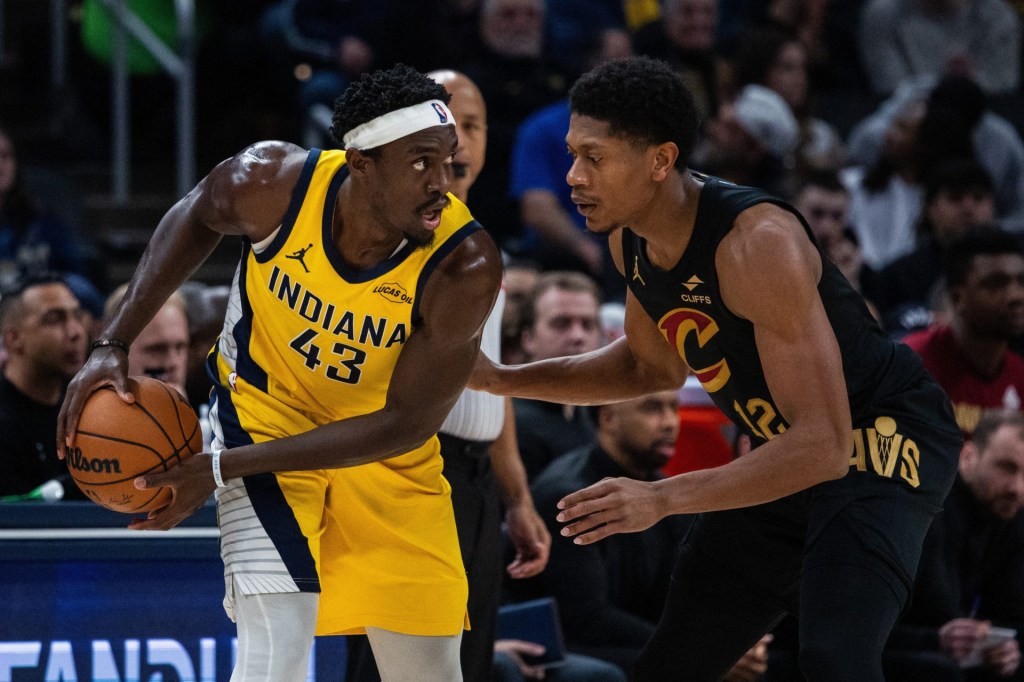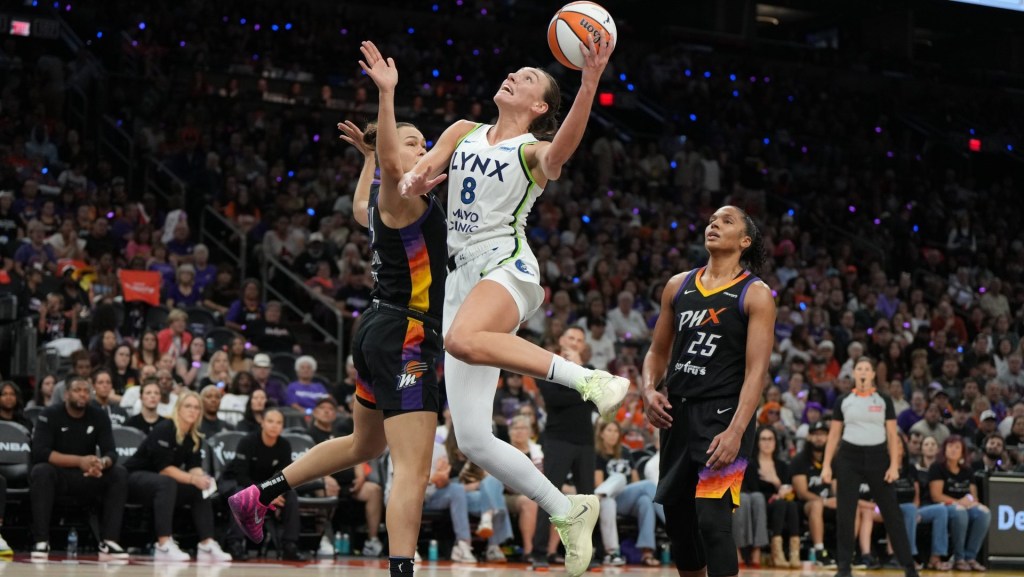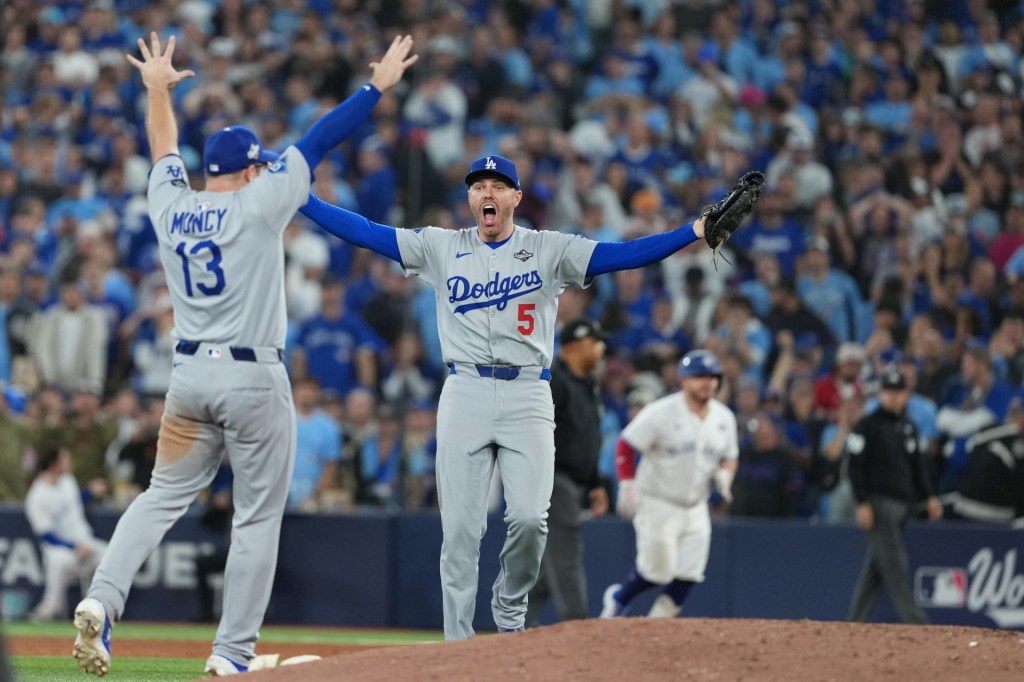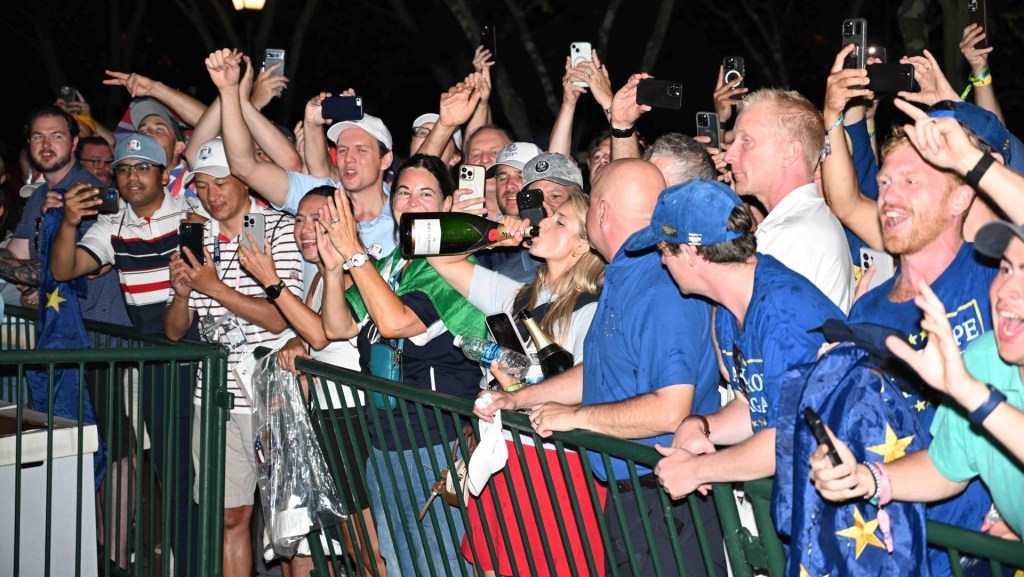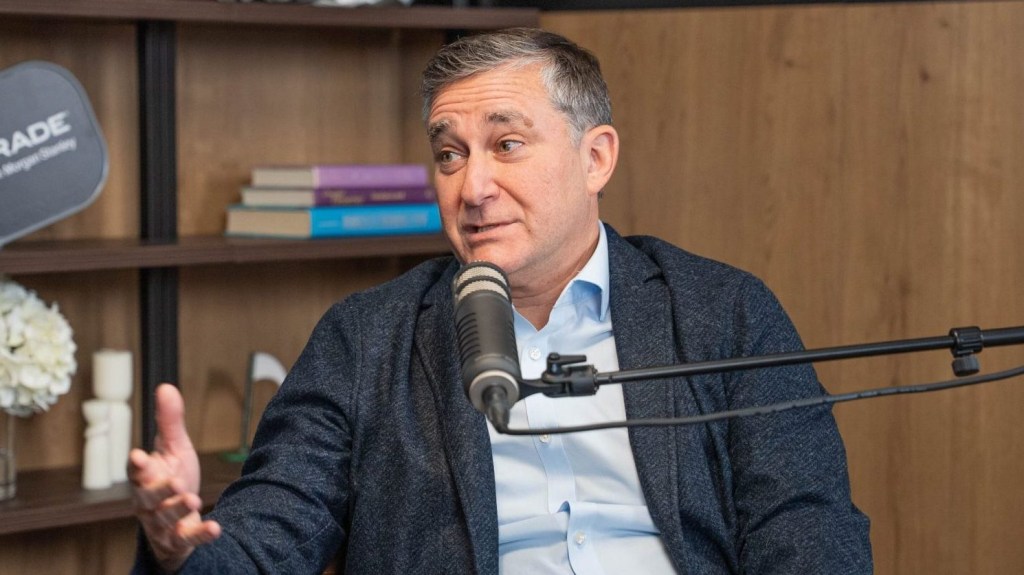CHICAGO — On Wednesday, Bubba Wallace, his team 23XI Racing, and NASCAR hosted the third Bubba’s Block Party, kicking off the first-ever Chicago Street Race weekend — which will culminate with The Loop 121 on Saturday, and the Grant Park 220 on Sunday.
The DuSable Black History Museum and Education Center — the oldest Black history museum in the United States — hosted a celebration of Black culture on Chicago’s South Side. Black-owned businesses and restaurants set up shop, barbers gave out free haircuts, and Chicago rapper Lupe Fiasco closed out the festivities with a concert.
“I think being in demographics like Chicago is massive,” Wallace told reporters before Wednesday’s event. “Going back to 2020, we’re showing that we’re not messing around — and we want to change for the better to allow all ages, races, disabilities, and whatnot to be a part of our sport with no boundaries, no hindrance there.”
That year was a turning point for NASCAR’s race relations. With the country on high alert as a result of COVID lockdowns and the murder of George Floyd, Wallace became the face of Black Lives Matter for stock car racing, urging NASCAR to ban the Confederate flag at races — which it did in June 2020.
But several weeks later, a knot in the shape of a noose was found in Wallace’s garage at Talladega Superspeedway. An FBI investigation found that Wallace wasn’t the subject of a hate crime — though NASCAR discovered that of the 11 garage stalls that had knotted door-pull ropes in all the sport’s venues, only Wallace’s was tied in a hangman’s knot.
The unfortunate incident gave NASCAR the chance to change its image, and it began with a grand gesture: Right before that weekend’s GEICO 500, every NASCAR driver and crew member pushed Wallace’s car to the front of pit road — an idea proposed by white drivers Jimmie Johnson and Kevin Harvick.
That year, Wallace was named the Comcast Community Champion of the Year.
“Creating a welcoming environment within the sport, I think, is really key in breaking down some of the perceptions surrounding the sport,” Caryn Grant, NASCAR’s senior director of diversity and inclusion, told Front Office Sports. “A lot of times, we’ll host groups at the track, and many of them haven’t been to a NASCAR race before [because they] never really felt welcome.”
Making those new fans feel welcome starts with seeing more diverse faces in the sport — both behind the wheel and behind the scenes.
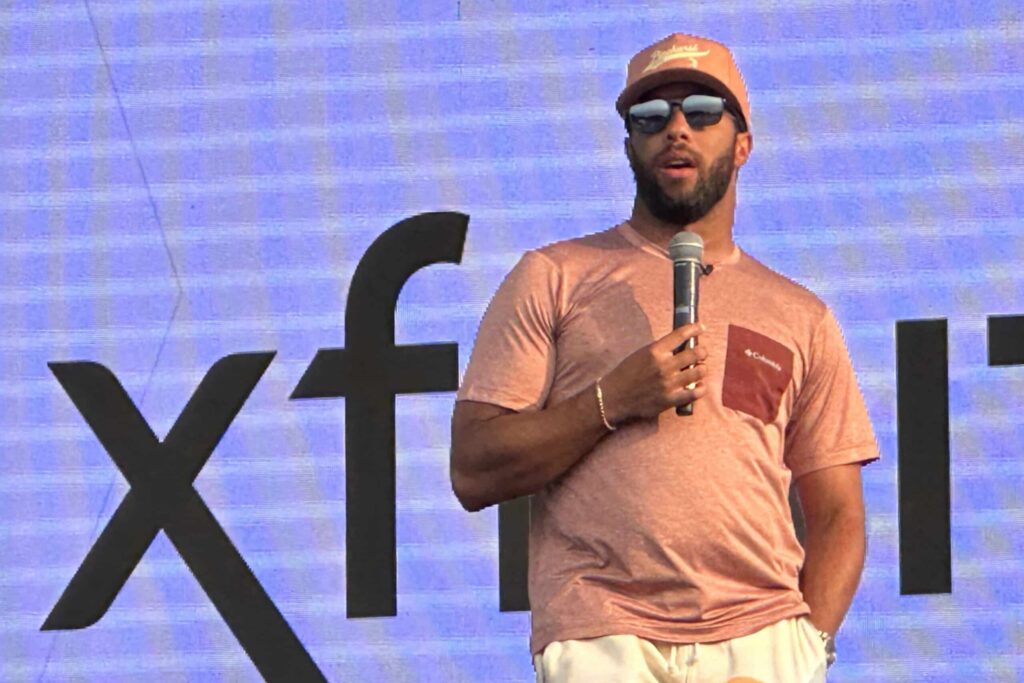
Drive for Diversity
Established in 2004, NASCAR’s Drive for Diversity program has helped launch the careers of Wallace, Daniel Suarez, Kyle Larson, Nick Sanchez, and Rajah Caruth — whom Wallace now mentors.
The program also discovered Brehanna Daniels, who became the first Black woman to pit a NASCAR vehicle in 2017 — and two years later, she and Breanna O’Leary were the first female duo to perform work in a pit crew.
Drive for Diversity has more than 55 alumni working in NASCAR, with more than 25 at the Cup Series level. The program drives approximately $2 million in salary.
The company’s diversity initiatives have impacted the sport at the fan level: Suarez has a passionate fanbase called Daniel’s Amigos that has helped build support in the Latino community.
Diversity has spread to ownership as well. Suarez races for Trackhouse Racing, the joint venture of driver Justin Marks and rapper Armando Christian “Pitbull” Perez. Then there’s 23XI Racing, owned by driver Denny Hamlin — not to mention lifetime NASCAR fan Michael Jordan.
“When we were looking for teams that were trying to drive the sport forward on the track and off the track, 23XI jumped off the page,” Matt Lederer, Comcast VP of branded partnerships, says of Xfinity, a presenting sponsor of Bubba’s Block Party.
“Michael Jordan is Michael Jordan, right? Anytime he is involved with anything, it certainly brings more excitement, more eyes, and things like that,” says Grant. “23XI has been a really interesting case because they’ve really taken to heart building diversity and inclusion into the foundation as they build out a new team.”
The team should have a few extra fans in Chicago, where Jordan is a legend. He reportedly invested $150 million to form the team in 2020.
Even though he didn’t attend Bubba’s Block Party, Jordan’s aura loomed over the festivities, which likely convinced new fans to check out the sport.
“I don’t know much about NASCAR, this is so cool,” said one woman as she gazed at Jordan’s visage inside a trailer highlighting the history of Black people in NASCAR.
“Newness spurs creativity and new ideas,” says Grant. “I’m excited to see what comes from Chicago that will become a part of the more holistic NASCAR ecosystem.”
For the Block Party’s namesake, it’s all a step in the right direction.
“We’ll continue to preach the gospel about NASCAR, get the word out there, and get people to feel good about coming out to a race and enjoying it,” Wallace says. “I think this is an incredible demographic to be a part of and tap into.”
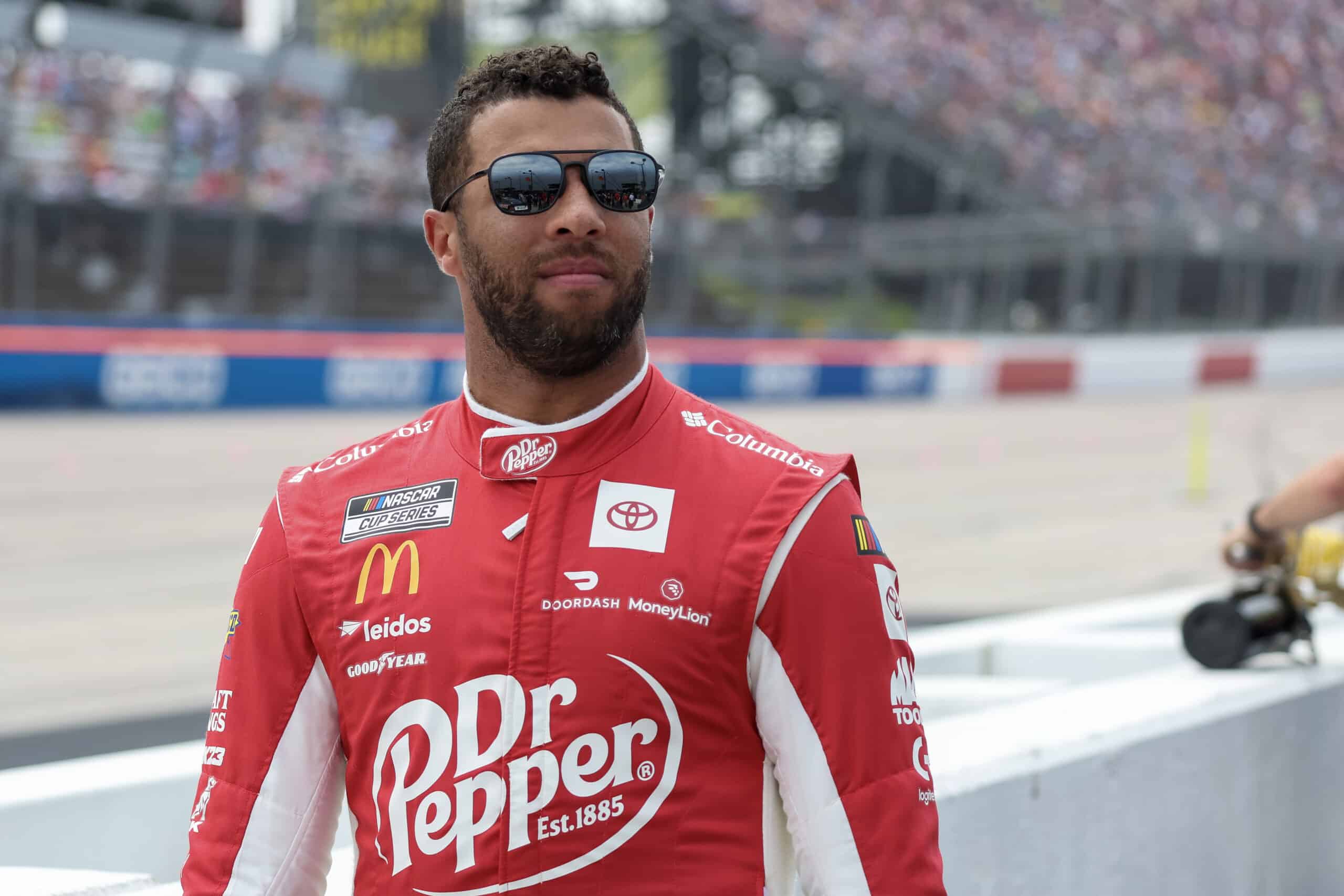
![[Subscription Customers Only] Jul 13, 2025; East Rutherford, New Jersey, USA; Chelsea FC midfielder Cole Palmer (10) celebrates winning the final of the 2025 FIFA Club World Cup at MetLife Stadium](https://frontofficesports.com/wp-content/uploads/2026/02/USATSI_26636703-scaled-e1770932227605.jpg?quality=100&w=1024)


